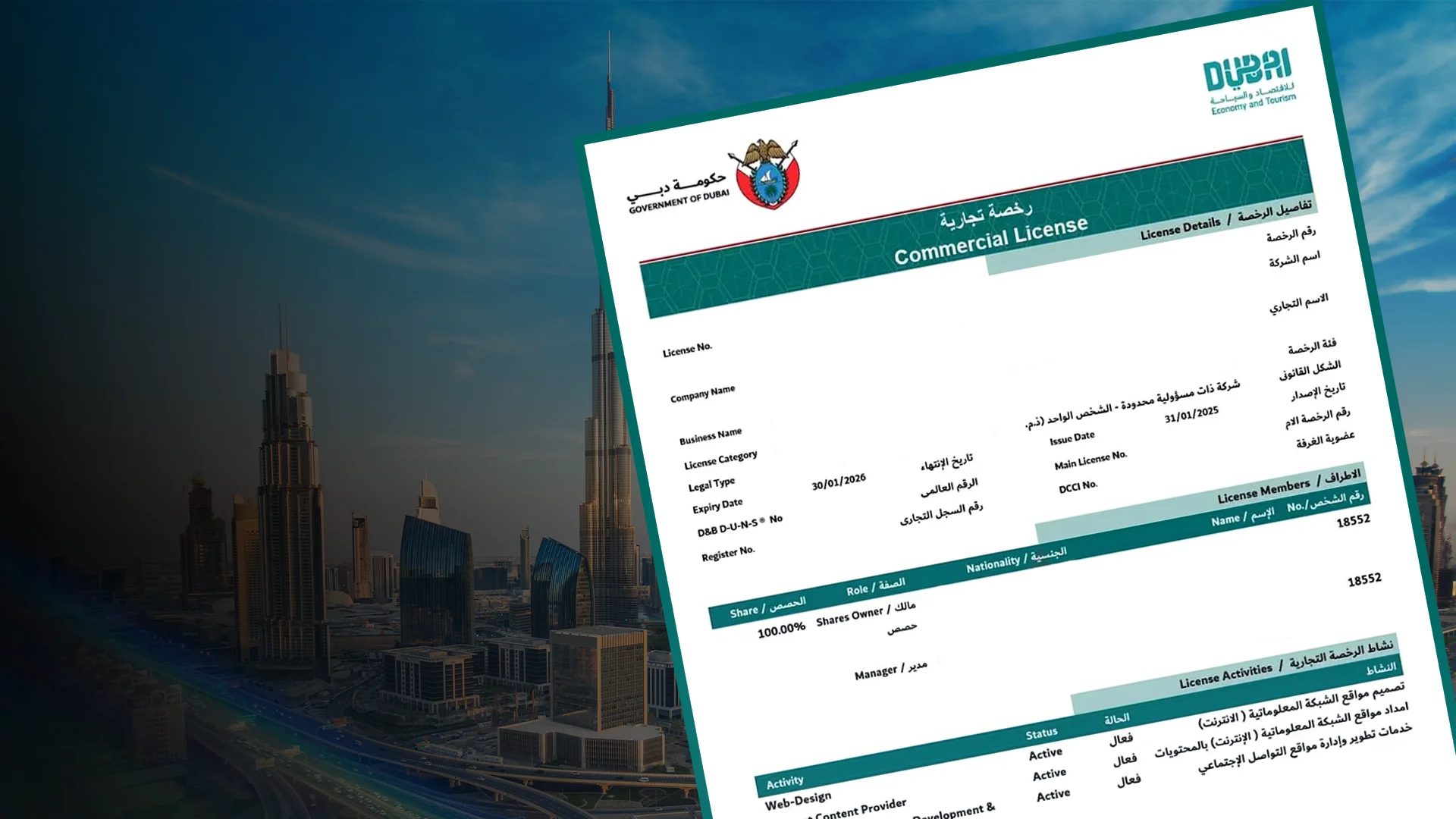
Topic Summary
1. Understanding the New Corporate Tax Framework
In 2025, the UAE’s corporate tax law is fully enforced, applying a standard rate of 9% on taxable profits exceeding AED 375,000. For businesses operating within Meydan Free Zone, it is crucial to comprehend how the tax regulations interact with free zone incentives, ensuring that tax exemptions are validly claimed and compliance is maintained.
2. Compliance Obligations for Free Zone Entities
Meydan Free Zone companies must register with the Federal Tax Authority (FTA), maintain transparent accounting records, and submit annual corporate tax returns—even if profits fall below the taxable threshold. Proper documentation and timely filings are indispensable to avoid penalties and meet legal requirements.
3. Tax Calculation and Deductible Expenses
Accurate computation of taxable income requires categorising revenues and allowable deductions in accordance with UAE tax regulations. Eligible expenses generally include business operating costs, salaries, and depreciation, but you should carefully distinguish non-deductible items to ensure precision.
4. Impact of Double Taxation Agreements (DTAs)
The UAE maintains numerous DTAs that may benefit businesses by reducing withholding taxes on cross-border transactions. Businesses in Meydan Free Zone should assess whether their international dealings qualify for treaty benefits, optimising their tax liabilities and avoiding double taxation.
5. Seeking Expert Assistance for Tax Readiness
Navigating the complexities of the UAE corporate tax regime need not be overwhelming. Engaging specialised tax consultants familiar with free zone regulations can streamline your compliance process, ensuring that filings are accurate, deadlines met, and financial records prepared to withstand regulatory scrutiny.
UAE corporate tax law is now fully in motion. And if you’re running a business in Dubai, especially from Meydan Free Zone — you need to stay corporate tax compliant in 2025. This is the year you need to make sure your setup, filings, and finances are all clean and tax-ready.
Do all the tax calculations sound daunting to you?
Don’t worry. There’s no need to decode the law or start panicking over filing dates. The rules may feel new, but with the right guidance, they’re easier to navigate than you think.
This UAE corporate tax guide breaks it all down simply; from what corporate tax means for your business to how compliance can be seamless from the moment you set up, especially if you do so inside a Qualified Free Zone, like Meydan.
Understanding Corporate Tax In UAE
Corporate tax officially kicked in across the UAE on June 1, 2023. But for most Dubai-based businesses, especially those setup in
Meydan Free Zone, 2025 could be the first real filing year.
And here’s the bottom line: corporate tax registration is not optional in the UAE. It’s a legal requirement for all businesses regardless of where you’re based, how much you earn, or whether you’ll actually pay tax.
What does that mean for you?
- You pay 0% on taxable income up to AED 375,000
- Anything above that, is taxed at 9%, unless you’re at Meydan Free Zone
- It is essential to register with the FTA, even if you aren’t liable to pay anything
Now’s the time to get your tax season preparation right in UAE, because what you do this year will set the tone for how smoothly you scale tomorrow.
So, how does Meydan Free Zone help you kickstart?
We make this step completely effortless. Your corporate tax registration is weaved in as a part of your business setup procedure, so you’re already on track since day one.
Meeting Criteria For Qualified Free Zone Person Regime
Just because you are based in a free zone doesn’t mean you're automatically exempt from corporate tax in the UAE.
But, under the Qualified Free Zone Person (QFZP) regime, you can still lock in one of the most powerful free zone tax exemptions that UAE offers, 0% corporate tax, if you meet the criteria.
So, what do you need for this status?
- Earn income only from other free zones or international clients
- Stay fully registered with the UAE Federal Tax Authority (FTA) and maintain compliance
- Avoid doing business directly with the UAE mainland
At Meydan Free Zone, we’ve built support into your licensing journey. We help you end-to-end, from setup to scale, making sure you stay on track and eligible with regulations like QFZP.
UAE Corporate Tax Guide to Filing and Deadlines
Understanding your tax period is key. In most cases, your financial year will match the calendar year. That means:
All UAE businesses must file within 9 months of their year end, even if no taxes are owed. If your first tax year ended on or before 29 Feb 2024, the FTA granted a one-time extension to 31 Dec 2024.
Gathering Records Is A Must For All
Corporate tax obligations in UAE don't only involve filing — you need to keep your records clean and correct for at least 7 years. At Meydan Free Zone, we make sure all your documentation is securely stored, digitally backed, and ready for inspection.
What do you need to maintain?
- Financial statements
- Payment receipts and tax invoices
- Payroll records
- Contracts and bank data
- Transfer pricing records, if there are any
Why You Should Avoid Corporate Tax Non-Compliance
Let’s keep it real. Ignoring UAE corporate tax filing deadlines and tax record-keeping requirements is not worth it. Failing to register or file your corporate tax can lead to:
- FTA penalties at AED 10,000+
- Delays in visa or immigration processing
- Risk of audit or operational bottlenecks
- Problems with opening up bank accounts and maintaining them
How Meydan Free Zone Can Help You Stay Compliant
At Meydan Free Zone, corporate tax compliance is built into your business from the start. We handle your FTA registration, assess your business activity eligibility for 0% tax, and track your filing deadlines, all automatically.
As a Qualified Free Zone, we don’t just ensure that your business stays eligible for 0% tax, but keep your documents audit-ready, send smart alerts when anything is due, ensuring your tax setup aligns with UAE law and Free Zone requirements.
We help you stay protected, penalty-free, and fully prepared. No stress, no guesswork.
In Conclusion
As Dubai solidifies its status as a global business hub, meeting corporate tax obligations has become an essential part of building a future-ready company. With Meydan Free Zone by your side, that future can become a reality today – effortlessly and confidently.
Meydan Free Zone actively supports businesses in staying compliant, guiding you through Dubai’s new corporate tax landscape so you can enjoy the benefits of a proper setup. We offer year-round support for all corporate tax and regulatory requirements. 100% confidence from company registration to corporate tax filing and ongoing reporting, ensuring you can focus on growing your business with peace of mind and momentum. With the right setup now, you’re not just compliant – you’re positioned for sustained, confident growth well into the future.
FAQs
1. How is corporate tax calculated in the UAE?
It’s pretty straightforward. Corporate tax in the UAE is calculated at 0% on taxable profits up to AED 375,000, and 9% on profits above that. All businesses need to determine their taxable income based on net accounting profit, then apply those deductions as per the UAE corporate tax calculation rules set by the FTA. You may qualify for 0% corporate tax if you are a QFZP (Qualifying Free Zone Person).
2. Do all businesses in the UAE need to register for corporate tax?
All UAE businesses—including Free Zone companies, mainland entities, and even solopreneurs, must register for corporate tax with the Federal Tax Authority (FTA), regardless of their income level. UAE corporate tax registration is mandatory, even if the business qualifies for a 0% tax rate.
3. What is the process for UAE corporate tax registration?
It’s done online through the FTA portal. You’ll upload your license, owner info, and business details. Our UAE corporate tax registration guide makes this process super simple—especially if you’re setting up with Meydan Free Zone.
4. Can Meydan Free Zone companies get a 0% corporate tax rate?
Yes of course, if you qualify. Under the UAE corporate tax free zone guide, Free Zone companies may qualify for a 0% tax rate if they meet Qualified Free Zone Person (QFZP) criteria. This includes doing business with other Free Zones or internationally, and maintaining compliance.
5. Is registration required if my Meydan Free Zone business qualifies for 0%?
Yes. Even if your Meydan Free Zone business qualifies for 0% corporate tax, you’re still legally required to register with the FTA and submit annual filings. The UAE corporate tax registration requirement applies to all entities within scope.
6. What documents are needed for UAE corporate tax registration?
You’ll need your trade license, Emirates ID, ownership details, and basic financial details. If you’re working with Meydan Free Zone, don’t worry at all—we help gather and submit everything for your UAE corporate tax registration in one go, your compliance is sorted from the start of your setup.
7. When do I need to file my first tax return?
Corporate tax returns must be filed within 9 months of your financial year-end. So, it really depends on your financial year-end. So, if your year ends in Dec 2024, your return is due by Sept 30, 2025. Meydan Free Zone will remind you well in advance.
































